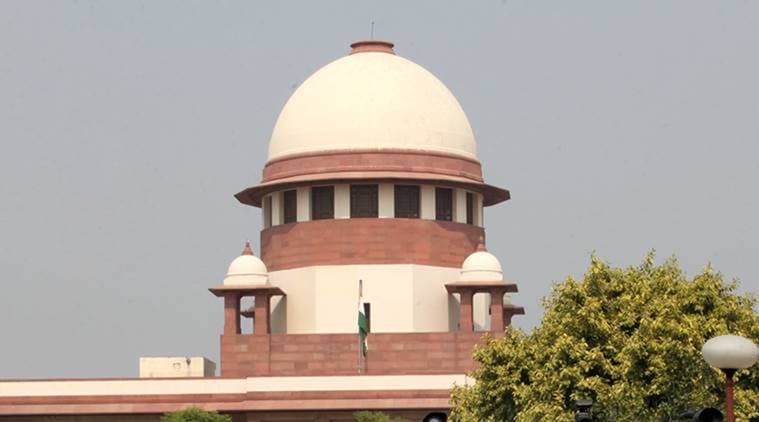THE ALL India Muslim Personal Law Board (AIMPLB) told the Supreme Court on Thursday that it would enable Muslim brides to include in the nikahnama (marriage contract) a provision allowing them to say no to triple talaq.
“We also don’t want the practice to go on. We had a meeting yesterday. It will be part of the nikahnama. We will send an advisory to all ‘qazis’ stating that they should avoid instant triple talaq,” senior counsel Kapil Sibal, appearing for the AIMPLB, told a five-judge bench headed by Chief Justice J S Khehar.

Concluding its hearing of a clutch of petitions challenging the practice of triple talaq, polygamy and nikah halala, the bench, which includes Justices Kurien Joseph, U U Lalit, R F Nariman and Abdul Nazeer, reserved its verdict.
Story continues below this ad
The bench had on Wednesday asked the AIMPLB if it was possible to include such a provision in the nikahnama. “Can it be made possible to give an option to a wife that she can say that she was agreeable to or not agreeable to it (triple talaq)? Is it possible to pass a resolution to all ‘qazis’ to include this condition in ‘nikahnama’? Give an option to wife to say ‘no’ to triple talaq,” the bench had asked. Reacting to Sibal’s submission today, Justice Kurien asked, “why not bring it on record”.
“Yes, we are doing it,” replied Sibal.
Explaining the AIMPLB’s stand outside the court, senior counsel and Board member Yusuf Muchhala said, “At the time of marriage, the religious functionary will inform the bride-to-be that she has the right to stipulate a condition in the nikahnama stating that her husband-to-be shall not pronounce triple talaq in one sitting.”
Asked how soon this would be done, he said, “We have not committed to any time limit, but we shall do it.”
Senior counsel Amit Singh Chadha, appearing for petitioner Shayara Bano, told the bench that “it will not solve our problems because married women will still have to go to court (in case talaq is pronounced)”.
Story continues below this ad
Another petitioner, Farah Fayaz, questioned the qualification of ‘qazis’, and asked how they could be allowed to sit in judgement on the lives of these women. She demanded that the “parallel judicial system of Dar-ul Khada be banned”.
The AIMPLB had earlier admitted that instant triple talaq is sinful. Recalling this, Justice Kurien asked, “you profess it to be sinful, then how can it enjoy the protection of the Koran?”
“Many sinful things happen in the world. Your lordships are not here to decide what are the sinful things… Parliament can interfere, it can make a law,” replied Sibal.
He followed this up with a statement that “women accept triple talaq”, inviting a chorus of protests from women lawyers in the court.
Story continues below this ad
Apparently replying to the contention that triple talaq is not sanctioned by the Koran, Sibal said, “you cannot go to the Koran and decide what Islam is. Islam is Koran, Hadith, Qiyas (analogy) and Hijma (consensus).”
Sibal reiterated that triple talaq is a part of personal laws of the community and enjoys protection from the court’s scrutiny. “The only permissible Constitutional route under Article 25 is for the Legislature to make a law and then its validity will be tested in court,” he said.
Senior counsel Salman Khurshid, who was deputed to assist the court, defended the AIMPLB, saying “it cannot be dismissed as an NGO etc. It is a congregation of those who are engaged in the study of Islam. What they say should be taken with some seriousness.”
“If it (instant triple talaq) is bad in theology, it is bad to God, how can something bad to God be personal law,” asked Justice Kurien. “It cannot be,” replied Khurshid, adding, “it was added later, it is not there in the Koran.”
Story continues below this ad
The Centre has termed all forms of triple talaq as unconstitutional and demanded that they be struck down.

 The Supreme Court. (File Photo)
The Supreme Court. (File Photo)






